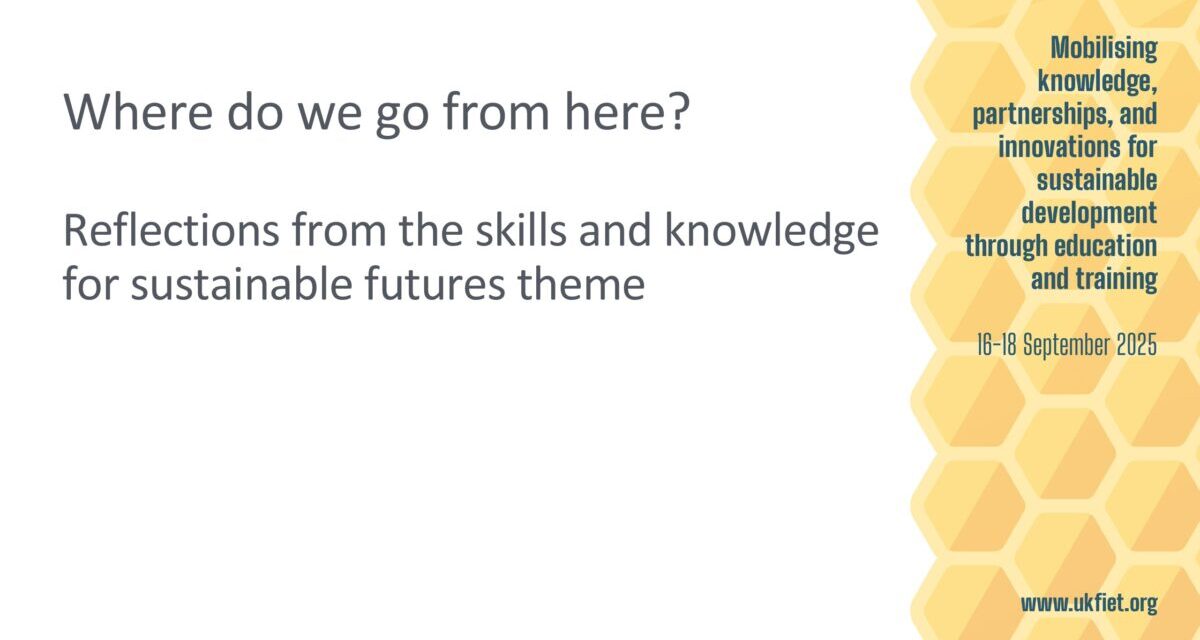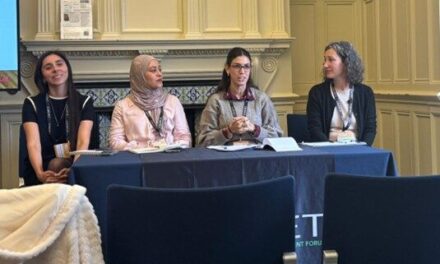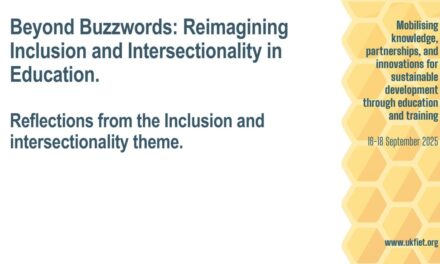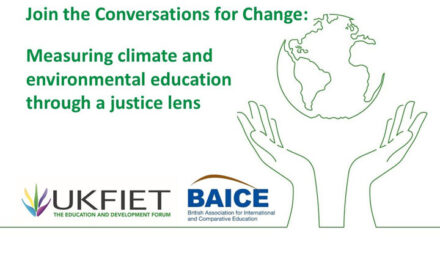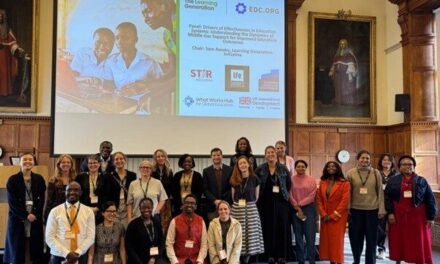Read the summary blog from the convenors of this theme:
Webinar
A webinar series followed the UKFIET September 2025 conference. These one-hour sessions on each of the seven conference sub-themes aim to give a flavour of discussions and amplify sparks ignited at the conference.
Convenors:
- Amy Parker, Right to Play
- Karem Roitman, The Open University
Panellists:
- Abismrita Chakravarty, University of Oxford
- Attiq Sadiq, Cambridge Ed
- Pritha Dahal, University of Glasgow
- Sara Hommel, Independent
- Maud Seghers, VVOB
- Claudia Cadena, VVOB
Amy Parker introduces the webinar with large questions from the theme:
- What is a good education in a world that is becoming increasingly unpredictable?
- What education is needed? Academic/socioemotional skills, we need to rethink where and how education happens more broadly, and whose voices are being heard.
- Who does the teaching, where does that learning happen, especially in relation to technology and AI?
Abismrita Chakravarty outlines learning from her research with craft communities in India. She highlights the fluidity of education and skills and how important the non-formal learning spaces are. Learning is not just about livelihood but about care, which is not curriculum bound yet still a crucial element of knowledge.
Attiq Sadiq brings the AI angle to the discussion. How can education keep up pace, especially in developing countries? Although AI can open new ways of learning, it also threatens to broaden the digital divide. Critical thinking is going to be essential – students must learn to question.
Pritha Dahal asks us what children have to say about their learning skills. We talk about ‘giving skills’ to children but we don’t ask them what they want. Friendship is the key element children see as essential to their learning. How teachers see them is also important.
Sara Hommel stresses that we need to look at the skills of teachers and school counsellors, as well as the skills we expect students to learn throughout their schooling, especially socioemotional skills. The ability of teachers to create an environment which values these skills and where students thrive in this setting is underestimated.
Maud Seghers discusses VVOB’s approach of working directly with partners, such as ministries, as well as those working in school systems. There is still a dominant focus on literacy and numeracy in curriculum structures but ministries are trying to prioritise the why and what of quality of education. Many are going through curriculum reforms from knowledge-based to competency-based – there is a strong belief in values and skills to react to real-world challenges.
Karem Roitman asks whose voices are being considered and whose knowledge and skills are being valued and legitimated. She highlights the danger of jumping in on technology approaches without understanding the vices, and she asks if learning should be an individual experience of whether it needs to happen as part of the community.
Claudia Cadena confirms that we need to extend how and where learning happens. The role of teachers is changing and they need to take more of a guiding role and work with their students to engage with the community and investigate real-life challenges and solutions. Learning goes beyond knowledge acquisition and involves gaining skills and shaping attitudes and values to apply outside of the classroom.

